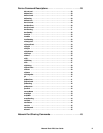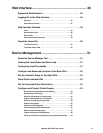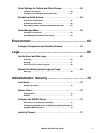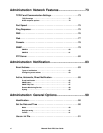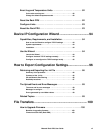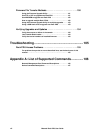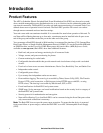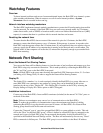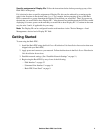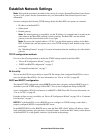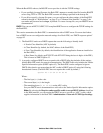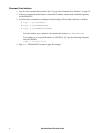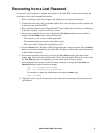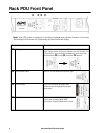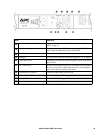Switched Rack PDU User Guide3
Watchdog Features
Overview
To detect internal problems and recover from unanticipated inputs, the Rack PDU uses internal, system-
wide watchdog mechanisms. When it restarts to recover from an internal problem, a System:
Warmstart event is recorded in the event log.
Network interface watchdog mechanism
The Rack PDU implements internal watchdog mechanisms to protect itself from becoming inaccessible
over the network. For example, if the Rack PDU does not receive any network traffic for 9.5 minutes
(either direct traffic, such as SNMP, or broadcast traffic, such as an Address Resolution Protocol [ARP]
request), it assumes that there is a problem with its network interface and restarts.
Resetting the network timer
To ensure that the Rack PDU does not restart if the network is quiet for 9.5 minutes, the Rack PDU
attempts to contact the default gateway every 4.5 minutes. If the gateway is present, it responds to the
Rack PDU, and the response restarts the 9.5-minute timer. If your application does not require or have a
gateway, specify the IP address of a computer that is running on the network and is on the subnet. The
network traffic of that computer will restart the 9.5-minute time frequently enough to prevent the Rack
PDU from restarting.
Network Port Sharing
About the Network Port Sharing Feature
You can use the Network Port Sharing feature to view the status of and configure and manage up to four
Rack PDUs using only one network connection. This is made possible by connecting the Rack PDUs via
the "In" and "Out" ports on the Rack PDU front panel.
Note: All Rack PDUs in the group must be using the same Rack PDU firmware revision, 5.1.5 or later
(excluding v6.0.5 EnergyWise), in order to support the Network Port Sharing Feature.
Display ID
The display ID is a number, 1 to 4, used to uniquely identify the Rack PDUs in a group. After two or
more Rack PDUs are connected to one another in a group, they can be identified on the various
interfaces by the use of this "Display ID". This Display ID is viewable on the LCD by selecting the
Display Settings > Display ID > Show option on the LCD keypad.
Installation Instructions
Connect up to four Rack PDUs. Insert an RJ45 terminator (included) in the unused "In"/"Out" ports on
each end of the chain.
Note: Failure to use terminators may cause a loss of communication on the Rack PDUs.
Note: To reduce the possibility of communication issues, the maximum total length of cabling
connecting Rack PDUs in a group should not exceed 10 meters. All Rack PDUs in a Network Port
Sharing group should reside in the same rack enclosure.
Connect the "Network" port of one of the grouped Rack PDUs to a network hub or switch. This unit
will be the "Host" for the Rack PDU group. A Host is defined as a Rack PDU that is connected to the
network and is part of a Rack PDU group. Set up network functionality for this Host Rack PDU as
specified in the Establish Network Settings section. The Host will automatically discover any "Guest"
PDUs connected via In/Out ports. The Rack PDU group is now available via the Host's IP address.



